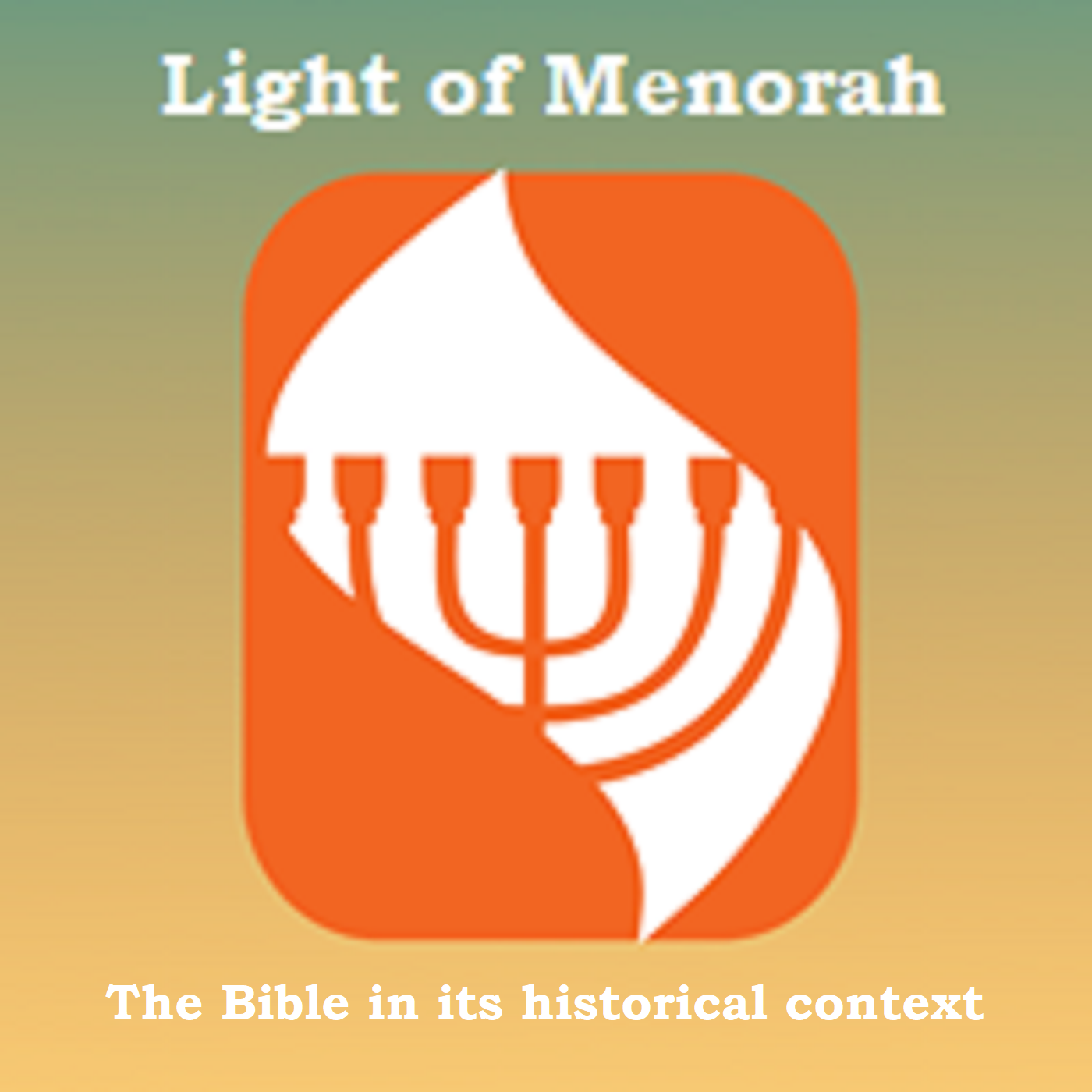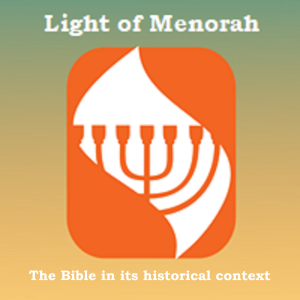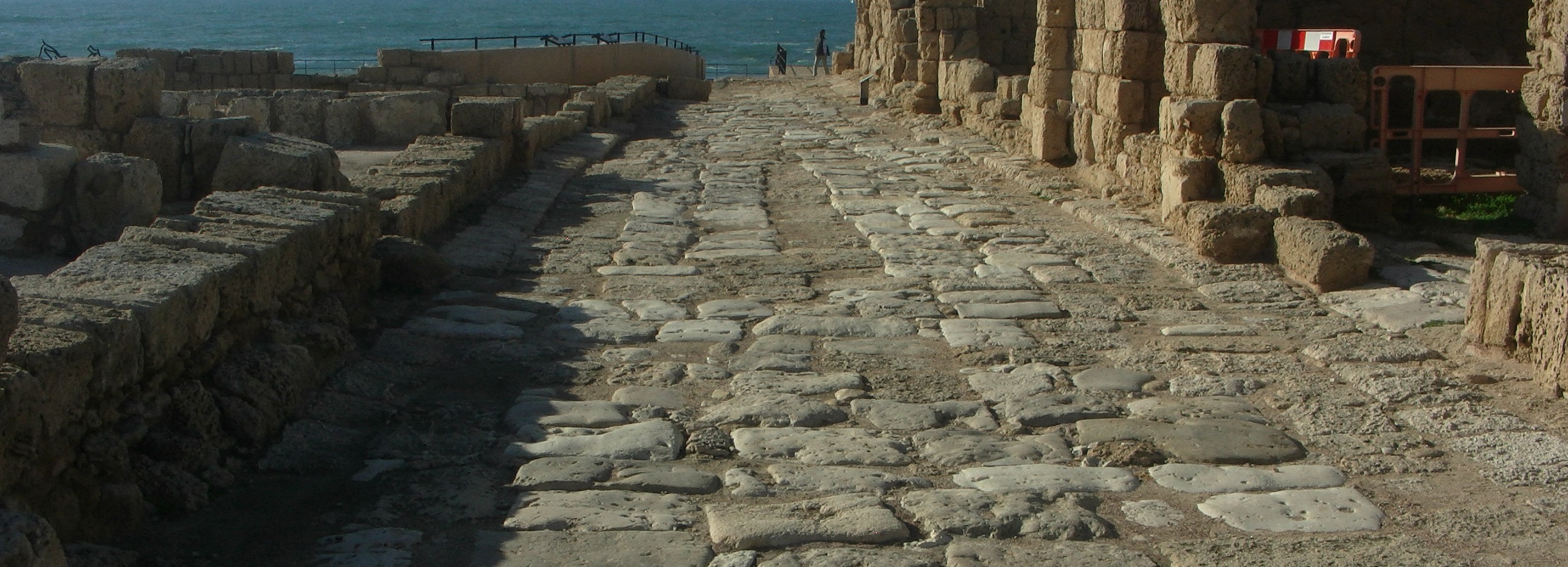
26.9K
Downloads
382
Episodes
The study of the Bible in its historical context - with a focus on the archaeology, history, geography, customs , culture, and even the languages of the ancient Middle East. WE ask what did they understand THEN - the original intent of the Lord - so that we can expand and enrich our understanding NOW and thus become true disciples of Adonai Yeshua as in John 8:31-32.
Episodes

Thursday Mar 20, 2025
Exodus 61 - Exod. 24:1-18 - THEY SAW GOD!! IMPOSSIBLE
Thursday Mar 20, 2025
Thursday Mar 20, 2025

In this podcast Bible study we are on Exodus 24. This chapter in Exodus is not filled with amazing events or miracles. It is not a chapter that is necessarily memorable like chapter 20 and the giving of the Ten Commandments or like Exodus 40 when God actually came down the first time to dwell among His people in the Tabernacle. But, Exodus 24 is amazing in its own right. For example there are two verses that challenge us right from the “get go” and seem to provide contradictions to the Bible. They are …
and they saw the God of Israel; and under His feet there appeared to be a pavement of sapphire, as clear as the sky itself. Yet He did not stretch out His hand against the nobles of the sons of Israel; and they saw God, and they ate and drank. (Exo 24:10-11)

They saw God? Huh? This is impossible. God says …
But He said, "You cannot see My face, for no man can see Me and live!" (Exo 33:20)
Or what about these two verses written by the disciple John …
No one has seen God at any time; the only begotten God who is in the bosom of the Father, He has explained Him. (Joh 1:18)
No one has seen God at any time; if we love one another, God abides in us, and His love is perfected in us. (1Jn 4:12)
So in Exodus 24 the word says that they saw God but by God’s own words this can’t be along with the words in John’s Gospel and in his letter of 1st John. So, what is going on? How can this be?
In this lesson we will again consider the Hebrew of Exod. 24:10-11. We will find that there are two separate words that are translated as “they saw.” Taken together and the fact that Hebrew words have no definitions like English words, the result is they did NOT SEE God. What they experienced as a VISION. The Hebrew is exact and precise. We will get into this in detail in the lesson.
These verses in Exodus 24 are a clear example that simple Bible reading does not make us “BIBLE LITERATE.” I have heard one pastor say to me that he urges his congregation to read the Bible using the schedule of reading the Bible in a year. You can find this as this link - https://bibleinayearonline.com/ This pastor’s goal was to help his congregation become Bible literate. In his church there are no Bible studies. The only teaching is just the pastor’s sermon on Sunday for 40 minutes or so. The problem is just reading the Bible once or twice completely and listening to a sermon once a week does NOT make one Bible literate. As one trusted scholarly source has commented …
- Knowing how to study the Bible is important, because determining the meaning of Scripture is one of the most important tasks a believer has in this life. God does not tell us that we must simply read the Bible. We must study it and handle it correctly (2 Timothy 2:15). (From GOTQUESTIONS.org link https://www.gotquestions.org/study-the-Bible.html)
- The Bible is a book that is not merely for reading. It is a book for studying so that it can be applied. Otherwise, it is like swallowing food without chewing and then spitting it back out again—no nutritional value is gained by it. (From GOTQUESTIONS.org link https://www.gotquestions.org/why-read-Bible.html)
So the real definition of BIBLE LITERACY is … (numbers relate to the links o the references below)
Biblical literacy refers to a person's ability to understand and apply the Bible, including its overarching story, key characters, events, themes, and literary elements. It's about comprehending the Bible's message and how it relates to one's life and faith. [1, 2, 3, 4]
Here's a more detailed explanation: [1, 3, 4]
- What it entails: Biblical literacy involves more than just knowing Bible stories; it's about understanding the Bible's core message, its historical context, and its relevance to contemporary life. [1, 3, 4]
- Why it matters: It's seen as a crucial aspect of Christian discipleship, equipping individuals to engage with their faith more deeply and to understand God's character and will. [2, 4, 5]
- How to cultivate it: Biblical literacy can be cultivated through consistent Bible reading, study, and reflection, as well as engaging with trusted resources and teachers. [2, 5, 6]
- Beyond the basics: It also involves understanding the different literary genres and forms within the Bible, such as poetry, prophecy, and history, and how they contribute to the overall narrative. [3, 7]
- Examples: The Bible Literacy Project provides a course that uses a textbook, "The Bible and Its Influence," to teach the Bible narrative and its impact on history, literature, art, and culture. [8]
- Current trends: The Church of God International reports a decline in Bible reading engagement in the United States, with statistics showing a drop from 50% in 2011 to 38% in 2024. [9]
[1] https://www.logos.com/grow/biblical-literacy/
[2] https://youthministry360.com/blogs/all/cultivating-biblical-literacy-in-student-ministry
[3] https://women.lifeway.com/2022/07/07/the-reference-desk-unpacking-biblical-literacy/
[4] https://bibleengagementproject.com/en/Blog/Why-It-Matters/Biblical-Illiteracy
[5] https://www.crossway.org/articles/lets-talk-about-our-bible-literacy-problem/
[6] https://www.worldimpact.org/blog/4-simple-steps-to-increase-your-bible-literacy/
[7] https://e360bible.org/blog/understanding-literary-context-in-the-bible/
[8] https://www.bibleliteracy.org/
[9] https://www.cgi.org/news-and-events/2024/8/8/decline-in-bible-reading
There is no problem with urging people to read the Bible. I congratulate that pastor I knew to urge his congregation to read the Bible. However, this pastor as all pastors are to GO and make disciples. This means Bible reading and study as a necessary component of any discipleship program.
I try and read the Bible regularly, especially the book of Psalms. But, that is not the end of the process. We as Christians, we as true disciples of our Lord Jesus, MUST live our lives with the constant focus of increasing our BIBLE LITERACY as outlined above. Rabbi Jonathan Cahn brought this up in his book, “The Book of Mysteries.” These are short 5 minute devotionals for each day. Here’s one on what it means to be a disciple …

(“The Book of Mysteries,” Rabbi Jonathan Cahn, Frontline Publishers ©2018)
The message is simple. Are you a disciple of Jesus? As a Christian you must be His disciple which means you are to learn – learn from Him, learn His word. A disciple is to be striving to be Bible literate.
If you remember God’s last command when He was among us was to GO and makes disciples. A disciple (talmeed in Hebrew from the Hebrew for learning) in Jesus’ day was a learner from their rabbi, their Torah master. Jesus said to go make disciples not converts. Make us into TALMEED, learners. The implication of Jesus’ words is that we are disciples of Jesus, we are His talmeed and He is our RABBI, our Torah Master. We want to be like Him and want to live to teach others what He taught us. We are to be BIBLE LITERATE. We are to be like those who modeled it for us 2000 years ago, the first. TALMEDEEM (plural) or disciples of Jesus.
(Check out this excellent article by the renowned Bible historian Ray Vander Laan on what is means to be a disciple in Jesus' day - https://www.thattheworldmayknow.com/rabbi-and-talmidim)
For them in Jesus’s day STUDY OF GOD’S WORD was considered the HIGHEST FORM OF WORSHIP. One great scholar of our Jewish roots of Christianity was Dwight Pryor. He has gone on before us to be with his rabbi, his Lord, our Lord Jesus. But Dwight Pryor was an awesome teacher and a highly credible and recognized Bible historian and scholar. He wrote an article on Bible study in Jesus’ day. Here’s the link to that article - https://webbpage-hnpv.com/yavo/1_4_Pryor_HighestWorship.html On top of that here’s a link to his audio series THE HIGHEST FORM OF WORSHIP - https://www.jcstudies.store/the-highest-form-of-worship/
Rev. Ferret - who is this guy?

What's his background? Why should I listen to him? Check his background at this link - https://www.dropbox.com/s/ortnret3oxcicu4/BackgrndTeacher%20mar%2025%202020.pdf?dl=0

No comments yet. Be the first to say something!